However good nutrition is all part of a successful study plan because it enables you to perform at your best.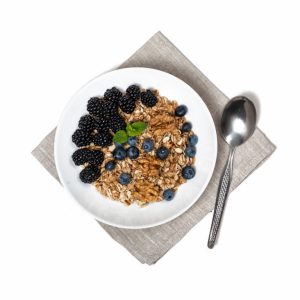
Meeting daily vitamin and mineral requirements will make doing your best much easier. Iron and B vitamins are especially important to maintain the physical and mental energy necessary to study well. Eating regular meals will help to keep nutrient and energy levels stable, curbing the temptation to snack on sweets and chocolate, which offer little nutritional benefit. You might find that eating the standard three-big-meals-a-day slows you down both physically and mentally. If so, consider 5 or 6, well balanced, smaller meals.
A recent survey carried out by the ‘Food & Mood’ project run by MIND, of 200 people, found that 88% of them said changing their diet for the better significantly improved their mood.
Breakfast… your study buddy
Whilst much is said about the reasons we need to eat breakfast, less known are the best ways to maximise this vital meal of the day. The idea is to get some protein, calcium, fibre and fruit or vegetables to power start the day. So, a bowl of cereal with milk and a piece of fruit would do the trick or a piece of toast with peanut butter and a banana. Alternatively, if you are short on time, try a cereal bar, a glass of milk and an apple.
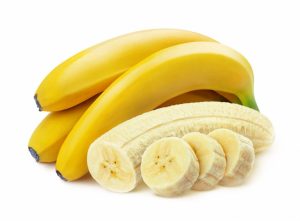
Smart Snacking
It is important to snack on foods which feed your brain whilst studying to enable you to retain more information. Try to get at least two food groups into your snacks to balance the nutrients and keep your blood sugar levels stable. Some ‘smart’ snack examples are toast with peanut butter and banana, or a baked potato with cottage cheese or baked beans.
Fruit ranks highly amongst the best foods you can eat for your brain. Blueberries (which can be bought frozen in bags) and bananas are particularly good brain food. The natural sugars in fruit offer ‘clean’ energy, so you don’t experience the crash that follows the consumption of refined sugar.
Try to choose Powerful Vegetables as not all are created equal. A good rule of thumb is that the darker the colour, the higher the concentration of nutrients. For example, spinach has more to offer the mind and body than an iceberg lettuce. Other great vegetable choices include peppers, broccoli and sweet potatoes.
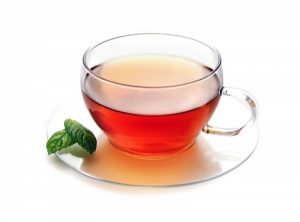
Hydration
We all know that it is important to stay well hydrated, but you need to choose your beverages well. Caffeine and sugar should be kept to a minimum. Too much coffee can make you feel jittery, so try to limit this to 2 cups a day. Better choices include water, fruit juice, milk and fruit tea.
Stress Busting Nutrients
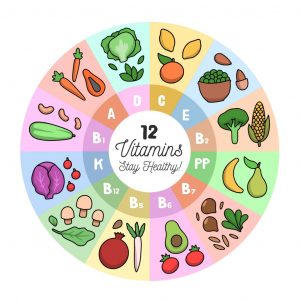 Stress can cause all sorts of issues, psychological and physical; however there are ways to boost your resilience and eating foods
Stress can cause all sorts of issues, psychological and physical; however there are ways to boost your resilience and eating foods
which contain ‘stress busting’ nutrients is one of them.
These include:
- Zinc which is found in lean meat, eggs, yogurt, cheese, whole wheat, popcorn, nuts and seeds.
- Vitamin C which is found in all fruit and vegetables.
- B Vitamins found in Wholegrains, Marmite, yogurt, beans and avocado.
- Magnesium found in dark leafy vegetables, grapefruit, sweetcorn, nuts and seeds, raisins, carrots and tomatoes.
- Chewable Vitamin C is not a meal – whilst dietary supplements are good, real food is far better for you. For example,
chewable Vitamin C cannot replace the nutrition found in an orange as an orange also contains fibre, beta-carotene and
other minerals. So when you are getting ready to go to study, pack whole food items like apples, bananas, dried fruit,
nuts and seeds.
Foods to avoid
In addition to psychological and physical stresses, there are also nutritional stresses. These impact on your body’s ability to
handle stress and should be avoided at particularly pressured times in your life at university. For example, when your workload
is demanding and before, or during exam periods.
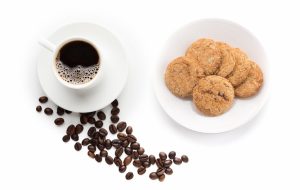
Caffeine raises stress hormones and can lead to insomnia. It is found in coffee, tea, cola, the herb guarana (in energy drinks),
green tea and some pain medication. Try to cut down gradually and replace with decaffeinated coffee and tea, fruit juice and
sparkling water, or fruit/herb teas.
Sugar is devoid of vitamins and minerals and uses up nutrients in the body such as vitamin B. Try to replace with honey, and
sweet or dried fruit.
Alcohol is a depressant, can cause anxiety, and is dehydrating. The recommended guidelines are 14 units per week for women
and 21 units per week for men, but not all at once. Try to have at least two days a week without drinking alcohol at all.
Think Balance!
Further Resources
https://www.bbcgoodfood.com/recipes/collection/student
https://www.studential.com/university/student-cooking/student-healthy-eating
https://studentrecipes.com/
http://www.drinkaware.co.uk/
This content was supplied by the Counselling and Wellbeing department of the University of Reading.
https://www.reading.ac.uk/counselling
All textual content Copyright The University of Reading.




